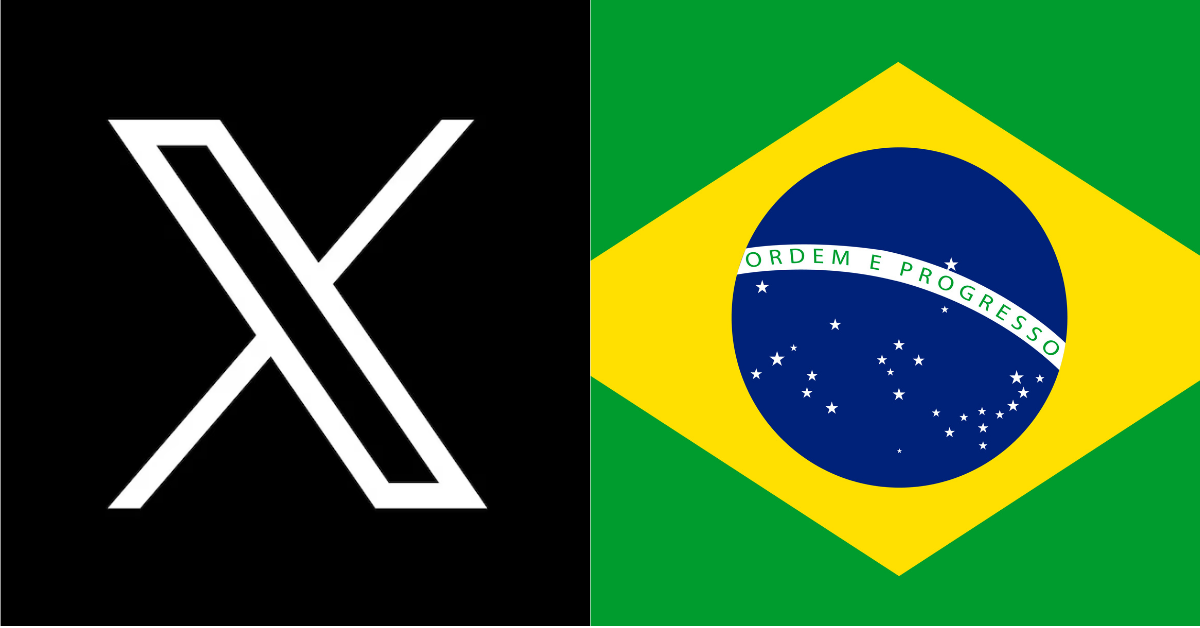In a dramatic turn of events, Elon Musk’s X (formerly Twitter) has shut down its operations in Brazil following a threat from the country’s Supreme Court Minister, Alexandre de Moraes. The decision, which has sent shockwaves through the tech world and beyond, raises critical questions about free speech, governmental power, and the future of social media in politically volatile regions.
The Clash: Musk vs. Moraes
When Elon Musk acquired Twitter, rebranded it as X, and positioned himself as a champion of free speech, the tech world watched with bated breath. Musk, a figure who thrives on disruption, promised a platform where ideas could flow freely without the encumbrance of heavy-handed moderation. However, the reality of operating in a complex, globally connected world quickly caught up with him.
Table of Contents
A Precedent of Concern
Musk’s decision to pull the plug on X in Brazil is more than just a business move; it’s a precedent that could have far-reaching implications. On one hand, it’s a bold statement against governmental overreach. By exiting Brazil, Musk is essentially saying that X will not be coerced into compromising its values, even if it means sacrificing a significant market.
But on the other hand, this decision opens a Pandora’s box. What happens when a government disagrees with the policies of a tech giant? Should the platform simply pack up and leave, or should it stay and fight for its right to operate? Musk’s move could embolden other governments to apply similar pressure on tech companies, forcing them to choose between compliance and exit. The implications for global free speech are profound.
The Free Speech Dilemma
Musk’s actions highlight the ongoing tension between free speech and regulation in the digital age. While X’s stance on free speech is clear, the realities of moderating content in different political and cultural contexts are anything but straightforward.
In Brazil, where misinformation has fueled political unrest and violence, the government argues that platforms like X have a responsibility to curb the spread of false information. Moraes, in particular, has been vocal about the need for stricter oversight of social media. From his perspective, X’s failure to act decisively against harmful content justifies the threat of legal action.
Musk, however, views the situation through a different lens. For him, the threat from Moraes is an affront to the principles of free speech. He believes that X should not be in the business of policing content to the extent demanded by the Brazilian government. Instead, Musk advocates for a platform where users have the freedom to express their views, with minimal intervention from the platform itself.
This clash of perspectives is at the heart of the free speech debate in the digital era. Musk’s decision to shut down X in Brazil rather than bow to governmental pressure is a dramatic manifestation of this debate, one that will undoubtedly have ripple effects in other parts of the world.
The Economic Fallout
Beyond the ideological implications, Musk’s decision to close X in Brazil also has significant economic consequences. Brazil is a major market, with millions of active social media users. For X, exiting this market means losing out on a substantial revenue stream.
But the impact isn’t limited to X alone. Other tech companies operating in Brazil are likely watching this situation closely, weighing the risks of continuing to do business in a country where the government is willing to exert such influence over digital platforms.
Moreover, this decision could have a chilling effect on foreign investment in Brazil’s tech sector. If international companies perceive Brazil as a hostile environment for tech firms, they may be less inclined to invest in the country, potentially stunting the growth of Brazil’s digital economy.
A Strategic Gamble
Musk is no stranger to high-stakes gambles. From revolutionizing the electric car industry with Tesla to pushing the boundaries of space exploration with SpaceX, he has built his career on taking risks that others wouldn’t dare. The decision to shut down X in Brazil is just the latest in a long line of bold moves.
But is it a gamble that will pay off? By standing his ground, Musk is reinforcing his image as a defender of free speech, a move that could bolster his brand in markets that value this principle. However, the loss of the Brazilian market could weaken X’s global position, especially if other countries follow Brazil’s lead.
Additionally, Musk’s decision could have unintended consequences. For instance, if other social media platforms remain in Brazil and agree to the government’s demands, X could be left out in the cold, losing relevance and market share in a key region.
The Future of X in a Politically Charged World
The shutdown of X in Brazil is a stark reminder of the challenges that tech companies face in a politically charged world. As governments around the globe grapple with the influence of social media, the balance between regulation and free speech becomes increasingly precarious.
Musk’s decision to exit Brazil is a clear message that X will not compromise on its core values, even in the face of governmental threats. But it also raises the question of how sustainable this approach is in the long term. Can a global platform like X truly operate without making concessions to local laws and regulations? Or is Musk’s stance a sign of things to come, where tech companies will increasingly choose to exit markets rather than comply with demands that they see as infringing on free speech?
A Bold Move with Uncertain Outcomes
Elon Musk’s decision to shut down X in Brazil is a bold move, one that underscores his commitment to free speech and his willingness to take risks. But it’s also a move that could have far-reaching implications, not just for X, but for the global tech industry as a whole.
As the dust settles, it will be crucial to watch how other tech companies respond to similar challenges in different parts of the world. Will they follow Musk’s lead, or will they choose a different path? Only time will tell, but one thing is certain: the debate over free speech, government regulation, and the power of social media is far from over.
Frequently Asked Questions (FAQs)
Why did Elon Musk shut down X in Brazil?
Musk decided to shut down X in Brazil following a threat from Supreme Court Minister Alexandre de Moraes, who accused the platform of not doing enough to curb misinformation.
What are the implications of X’s exit from Brazil?
X’s exit could set a precedent for how tech companies respond to government pressures, potentially impacting free speech and foreign investment in Brazil’s tech sector.
How does this decision affect free speech?
Musk’s move highlights the tension between free speech and government regulation, raising questions about how tech platforms should navigate these issues in different regions.
What might happen to X’s market position globally?
Losing the Brazilian market could weaken X’s global position, especially if other countries adopt similar stances towards social media regulation.
Will other tech companies follow X’s lead?
It remains to be seen how other tech companies will respond to similar challenges. Musk’s decision could inspire others to take a stand or prompt them to find ways to comply with local regulations.
Key Takeaways
- Musk’s decision to shut down X in Brazil is a bold stance on free speech.
- The move sets a precedent with potential global implications for tech companies.
- The balance between free speech and regulation continues to be a contentious issue in the digital age.
Stay tuned as this story unfolds and as we explore the future of social media in a world where tech giants and governments are increasingly at odds.
Read More News
